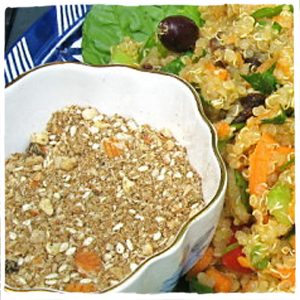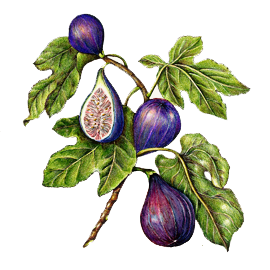Posted originally on for Huffington Post
Ramadan And Compassion — We Are Like Family
 Ramadan began last night at sundown, so I wished my next door neighbors a heartfelt, but no doubt, badly pronounced Ramadan Mubarak — blessed Ramadan. They are Muslim, from, well, it doesn’t matter what country they’re from. Muslims make up an estimated 20 percent of the world’s population and they live everywhere, from Oslo to Miami. My neighbors have been living here longer than I have. We are different, but we live next to each other. As the patriarch said to us the day my husband and I moved in, “We are like family.”
Ramadan began last night at sundown, so I wished my next door neighbors a heartfelt, but no doubt, badly pronounced Ramadan Mubarak — blessed Ramadan. They are Muslim, from, well, it doesn’t matter what country they’re from. Muslims make up an estimated 20 percent of the world’s population and they live everywhere, from Oslo to Miami. My neighbors have been living here longer than I have. We are different, but we live next to each other. As the patriarch said to us the day my husband and I moved in, “We are like family.”
We may be an odd family, but honey, what family isn’t? We have different schedules, different demands, different priorities. That’s okay — with family, you don’t have to be crazy about each other or in each other’s business every minute. You just have to respect each other.
This time of year, it’s easy. I’m not Muslim but I’ve always thought Ramadan was pretty cool. It’s thirty days of fasting and prayer from dawn to dusk, a time of returning to yourself and your family, a time to pledge your faith anew. One of the core precepts of Islam is forgiveness, and after the hate killings in Norway, that’s an area I’m working on.
You don’t need me to tell you the killing in Norway was screwy, evil and wrong. What worries me is how quick political leaders including Angela Merkel, David Cameron and Nicholas Sarkozy have been to blame multiculturalism.
It’s true, our society is riven — rich and poor, Muslims and Christians, Palestinians and Israelis, North Koreans and South Koreans, Republicans and Democrats, and the ever-divisive meatless and meat-eaters. We’ve been fighting over religion and race and our side versus the other side for all of recorded history. And we still haven’t figured out it doesn’t work.
Blaming multiculturalism is like blaming the victims. So to say each nation must live as one people with one ethos, well, that’s repression, isn’t it? On top of which, it’s like wishing for the return of 8-track tapes. Not gonna happen. Muslims and agnostics can and do live within a stone’s throw of each other. The question is, how to do it without throwing stones.
Ramadan takes its name from al-ramad — intense heat. It happens during the hottest month of the year, and with increased population and climate change, it’s only getting hotter. We are all vying for the same limited natural resources. We continue to tax them. Rather than trying to ship anyone who doesn’t think the same way we do to another country, we’re going to have to think — and eat — differently. Study after study has shown a less meat- intensive diet means more land, more food, more water for all of us. Just tweaking what we eat has huge consequences. If everyone in America ate one meatless meal a week, it’d have the same beneficial environmental impact as taking over seven million cars off the road.
Call me crazy. Call me worse. But the fact is, diverse as we all are, we still have to live together. And since we do, it helps to come at it from the point of view of compassion (a big vegan concept) and forgiveness (a big Muslim concept). And a little less meat would be a good thing, too.
My neighbor’s son shoots hoops and eats pizza. I do yoga and probably cook as much Arabic food as he gets at home. Whatever your beliefs, I wish you Ramadan Mubarak. As my neighbor said, we are like family. We live together. Or we do not live at all.
Iftar Quinoa With Olives, Dates and Dukkah
Across the Middle East, Iftar, the Ramadan break fast after sunset, often features olives and dates, two natural restoratives. Here, olives and dates come together with quinoa. Bulgar or couscous might be the more traditional choice, but quinoa, originally from South America, gives you that little extra boost of protein and is so easy to make. Besides, we’re multicultural, babe, get used to it.
This main course salad gives you a little salt from the olives, a little sweet from the dates, a lot of nourishment from the quinoa and vegetables, plus a dusting of dukkah, a heady, heavenly blend of nuts, seeds and spices.
Another great way to dukkah — dip flatbread in olive oil, then in a shallow plate of dukkah.
1 cup quinoa, rinsed*
2 cups water or vegetable broth
3 carrots, grated
2 ribs celery, diced
4 dates, chopped (1/4 cup)
1 roasted red pepper, diced (commercial kind, available in jars, is fine)
12 kalamata olives
1 bunch cilantro, chopped
2 lemons, zest and juice (about 6 tablespoons juice)
3 tablespoons olive oil
1 teaspoon cumin
1 pinch sea salt
4 big handfuls spinach leaves, arugula or other fresh greens (about 5 cups)
dukkah (recipe below)Bring broth or water to boil in medium saucepan. Add quinoa and cover. Reduce heat to low and cook, covered for 20 minutes, or until all the liquid has been absorbed and quinoa has popped and expanded.
Grate in lemon zest. Fluff together with a fork. Set aside to cool.
In a small bowl, whisk together lemon juice, olive oil and cumin until emulsified.
In a large bowl, mix together grated carrots, diced celery and chopped dates. Add quinoa. Pour in lemon-cumin dressing and mix well to combine.
Cover and refrigerate at least 4 hours and up to overnight. The flavor improves as the ingredients get happy together.
Add chopped cilantro and greens, mixing in gently.
Sprinkle with dukkah just before serving or serve dukkah separately.
*rinsing cleans quinoa of saponins, a natural bitter protective coating
Serves 6.
For dukkah:
1/2 cup almonds
1/4 cup sesame seeds
4 tablespoons coriander
1 tablespoon black peppercorns
1 teaspoon fennel seeds
2 tablespoons cumin
1 teaspoon sea salt
optional — pinch of cardamon or cayennePreheat oven to 425.
Pour sesame seeds and almonds into separate shallow rimmed baking dishes. Place both dishes in oven.
Toast sesame seeds for 5 minutes or until slightly golden.
Toast almonds for an additional 4 to 5 minutes, or until brown and fragrant.
Allow nuts and seeds to cool.
Pour almonds and sesame seeds into a food processor. Add the spices and sea salt and pulse for less than a minute, until it forms a coarse powder. Perfect, you have made dukkah. Stop processing, or else you will wind up with a paste, not a powder.
Transfer dukkah to a 2-cup container with a tight-fitting lid. Seal and refrigerate.
Dukkah keeps for up to 3 months.


Leave a Reply